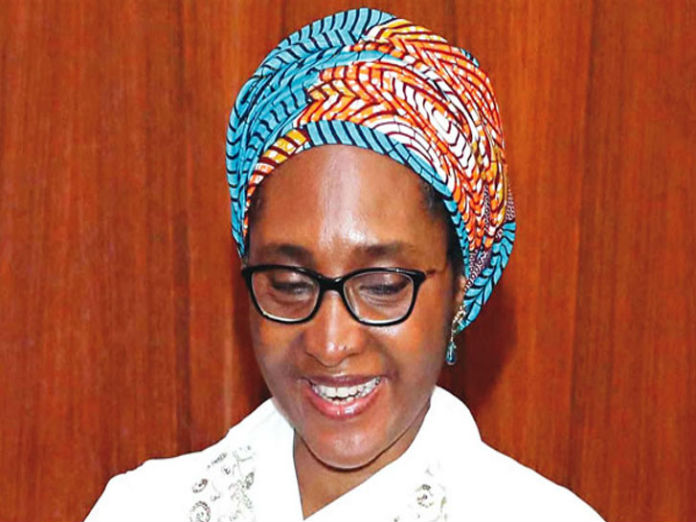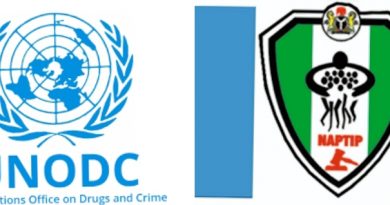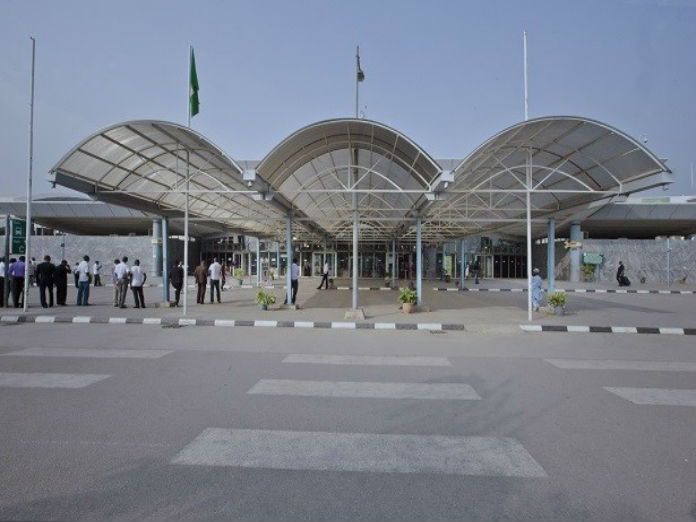INT’L ANTI-CORRUPTION DAY: UNODC, CHRICED, Other Stakeholders Call for Collective Action to Stamp Out Corruption
Oru Leonard
The United Nations Office for Drug and Crime (UNODC), the Resource Centre for Human Rights and Civic Education (CHRICED) and several agencies if the Federal Republic of Nigeria gathered on Friday to commemorate the International Anti-Corruption Day 2022, citizens, anti-corruption institutions, and grassroots stakeholders have been urged to remain staedfast in the fight against corruption and its crippling effects on development and quality of life.
In his welcome remarks Dr. Oliver Stolpe, UNODC Country Representative started by sharing the message of Ms Ghada Waly, Executive, Director of the United Nations Office on Drugs and Crime, as stated in part.
‘’Corruption threatens our security, it drives organized crime. it corrodes our economy. ; It crushes opportunities for development. And it traps people in cycles of inequality and poverty.
“On International Anti-Corruption Day, and every day, we can all act to stop corruption. And we must. Because our communities are losing out on trillions of dollars and countless opportunities. As we face growing financial uncertainty, escalating conflicts, and climate disasters, it is more important than ever to end corruption.
“UNODC is responding. This year we established our first ‘anti-corruption’ regional hubs in Africa and Latin America, to bring our assistance and expertise closer to the point of delivery.
“We have enhanced our cross-border cooperation through the GlobE Network, with membership of 127 entities from 69 countries, and we have teamed up with the World Bank to bolster asset recovery efforts around the globe. in times of emergencies, it is critical to have anti-corruption safeguards in place. COVID-19 response and recovery efforts highlighted that with significant amounts of money come significant risks.”
He noted that Anti-corruption efforts will prove essential to safeguard climate finance and to ensure that the green transition is not undermined by corrupt practices, adding that youth and children have the most at stake. Bolstering anti-corruption and that education is central in order to connect, engage and empower the next generations. This includes working to help shield sports from corruption.
Speaking also, the Executive Director of CHRiCED called on citizens to use International Anti-Corruption Day to reflect on how to fight for their fundamental right to a good life. Nigerians who have endured the brunt of corruption and its consequences cannot afford to remain silent in the face of adversity and deprivation.
“Citizens must raise their collective voice and leverage to condemn corruption and demand accountability. CHRICED is also convinced that the 2023 general elections will be the latest opportunity for citizens to use their vote to elect leaders and future governance actors who will act in the best interests of the people and not use their positions for corrupt enrichment and mass poverty”, he said.
He noted that with the theme UNCAC at 20: Uniting the World Against Corruption, citizens should have a unified front to eradicate corruption at all societal levels, adding also that they are convinced that the message of unity, as a sure step to dealing a decisive blow to corruption and it perpetrators, is crucial, particularly in a country like Nigeria, where corrupt politicians are quick to exploit ethnic, religious, and sectarian sentiments before and after stealing the country’s resources intended for the common good.
He further advised that, “People at the grassroots level, who are the victims of corruption, must acquire the necessary skills and information to expose corruption and hold accountable those responsible.
As Nigeria approaches the general elections in 2023, CHRICED urges candidates, political parties, poll workers, and voters to avoid all forms of electoral corruption.”
CHRICED also called on all political parties and their candidates to provide a comprehensive and actionable blueprint outlining how they intend to prevent corruption and its debilitating effects on governance outcomes. This is the only way for political actors to demonstrate that they support and are willing to implement Section 15 (5), which states that the “State shall abolish all corrupt practices and abuse of power”, he concluded.
In attendance and agencies that participated include; The National Agency for Prohibition of Trafficking in Persons (NAPTIP), Code of Conduct Bureau (CCB), Economic Financial Crime Commission (EFCC), among others.
About IACD
The 2022 International Anti-Corruption Day (IACD) seeks to highlight the crucial link between anti-corruption and peace, security, and development. At its core is the notion that tackling this crime is the right and responsibility of everyone, and that only through cooperation and the involvement of each and every person and institution can we overcome the negative impact of this crime. States, government officials, civil servants, law enforcement officers, media representatives, the private sector, civil society, academia, the public and youth alike all have a role to play in this.
The 2022 IACD also marks the start of our efforts to mark the twentieth anniversary of the United Nations Convention against Corruption (UNCAC). This is reflected by the theme of this year’s international day, “UNCAC at 20: Uniting the World Against Corruption’. Over the next year, culminating with [ACD 2023, together with partners worldwide, we will be reflecting on a world made better thanks to the collective push afforded by the Convention and, crucially, what gaps remain to ensure this is a truly strong mechanism for the years ahead.

About the UNCAC
Uniting the World Against Corruption for Development, Peace and Security Corruption (UNCAC), is a major impediment to peace, security and development. From education to the environment, from business to sports, from gender equality to access to justice, and more – corruption undermines all areas of society’s development. in 2003, the world came together to adopt a landmark agreement —the Un ted Nations Convention against Corruption (UNCAC). Since then 188 parties have committed to the Convention’s anti- corruption obligations showing universal recognition of the importance of good governance, accountability and political commitment. Nigeria ratified the Convention in 2004 and has been reviewed twice since the Conference of State Parties to the Convention established the Implementation Review Mechanism in 2009. The UNODC Country Office in Nigeria, in cooperation with all relevant stakeholders, has prepared a report which takes stock of Nigeria’s follow up to the 2014 and 2019 UNCAC implementation reviews. The full report will be presented on 14 December at an event at the UN house in Abuja. The world today faces some of its greatest challenges in many generations —Challenges which threaten prosperity and stability for people across the globe including in Nigeria. As we move towards the twentieth anniversary of UNCAC in October 2023, this Convention and the values it promotes are more important than ever.




